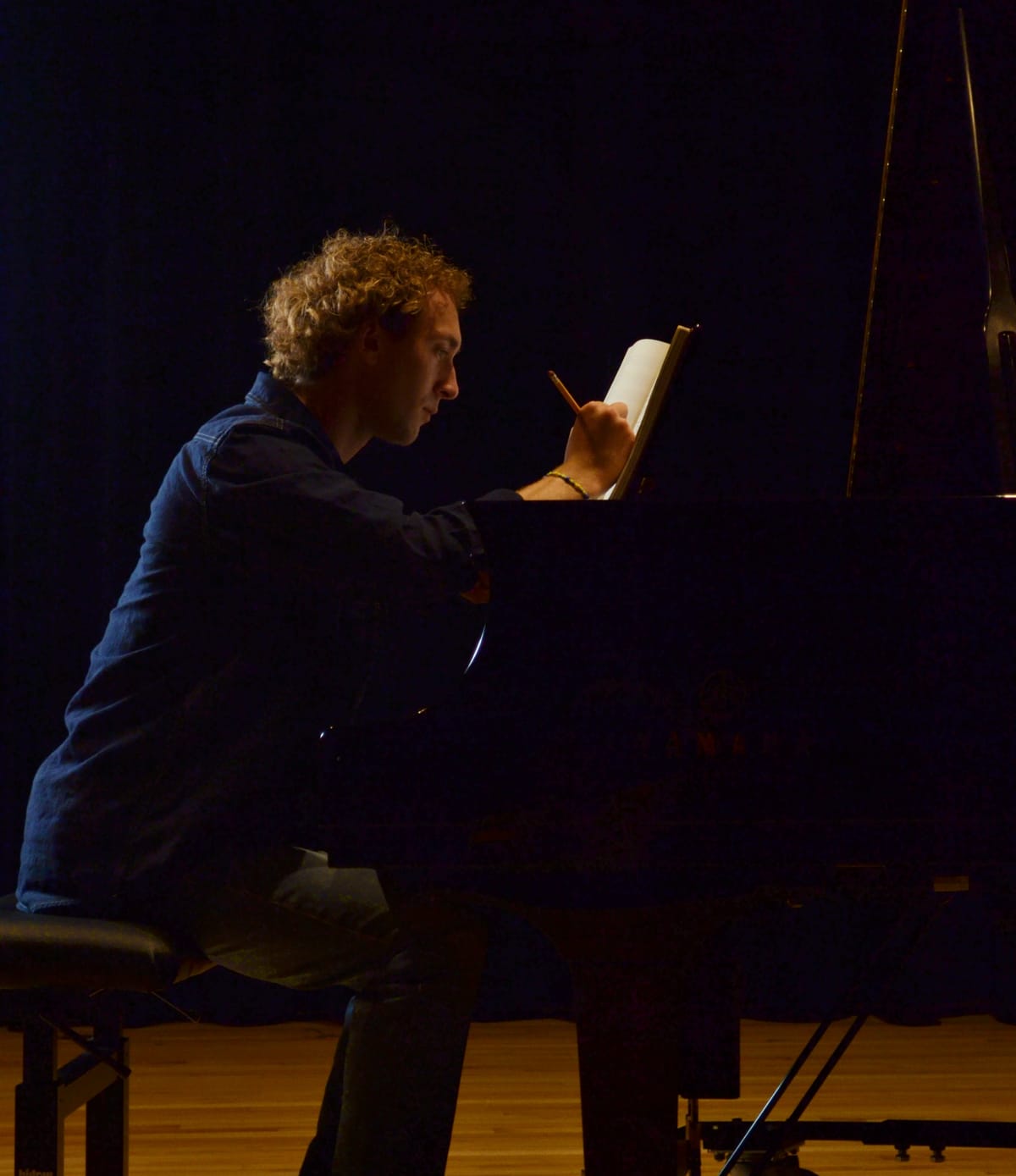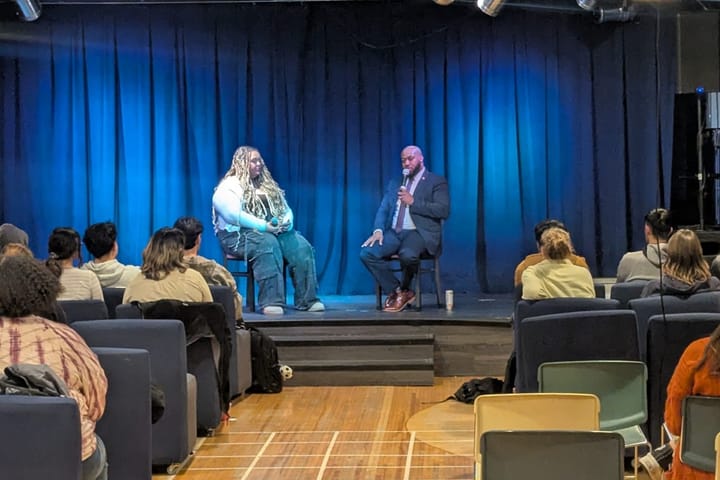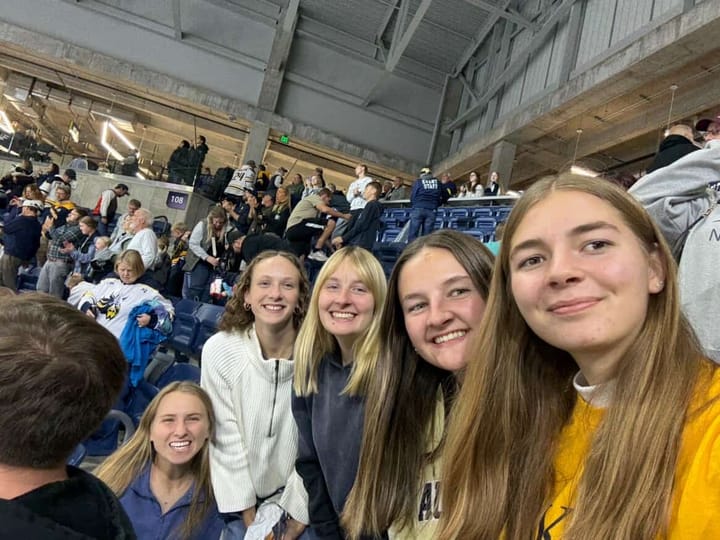From practice room to publication, Brachman shares his reflections

In the basement of the Fryxell Humanities Center is a practice room. Inside of that room is a chair, a music stand, a piano and bench. Atop that bench sits Adam Brachman.
Through his mind swirl notes, rhythms and chords. His fingers dance up and down the piano, hitting keys both white and black with the same care as someone crafting origami. Music fills the air before Brachman puts pen to paper, filling bar lines with symbols that read to him like words to a language’s speaker.
He’s just finished composing a piece of music.
After years of hard work and devotion, Brachman, a sophomore with majors in music and media production & entrepreneurship, has published his first collection of sheet music for piano. Titled “Seven Reflections for Solo Piano,” it is now out on all music streaming services like Qobuz, Anghami and Apple Music Classical.
Brachman started his piano career in kindergarten, an age at which he was not comfortable playing the piano.
“For the first four or five years, I hated it,” Brachman said. “I progressed fine, but I didn’t think there was anything for me at the piano.”
In sixth grade, he finally played a piece that challenged and inspired him: Pachelbel’s “Canon in D.” Not long after, he picked up composing.
“No one had ever told me that writing music was hard, so I wasn't scared of it. I didn’t know a lot of music theory so it was pretty simple. I mainly just focused on chord progression,” Brachman remembered. “And I wasn’t even old enough to reach an octave on the piano. Back then I just had to play everything in fifths.”
Eventually, he produced his first piece of music.
“I showed it to my mom, and she didn’t believe I wrote it. She was convinced I stole it from somewhere,” Brachman said. “I guess that’s what happens when your 12-year-old who has never written music before shows you his first piece.”
Now grown-up and attending college, Brachman has also grown in his abilities and his understanding of the writing process. He said that Jeremy Hegg, his composition teacher, has been a big influence along the way.
“When I first came to Augie, I was writing super classical, which is not entirely what people want to listen to nowadays,” Brachman said. “By taking Jeremy’s classes and putting more jazz influence in, I’ve really improved my composition.”
Hegg, an adjunct professor and instructor of piano, has been working with Brachman since his freshman year at Augustana. Hegg worked with Brachman to provide perspective to the compositions but noted that Brachman didn’t need any help getting started.
“The best thing I can do is to offer experience he doesn’t have because he’s young,” Hegg said. “To his credit, I think he was going to write these reflections no matter what. And I think it’s a good self-portrait of where he’s at right now. It’ll be interesting to see where he’s at in a few years.”
This idea of a “self-portrait” was one that Brachman thought about during the writing process. He said that he started these pieces as études — or musical exercises — but later changed them to reflections because they seemed more meaningful than “just exercises.”
“I wrote from observing the world around me. Observing my thoughts. That’s how I came up with the name ‘Reflections,’” Brachman said. “This collection also tells the story of my journey as a composer. I wrote the first of the pieces in high school and finished them at the end of my freshman year of college.”
Kiley Coyne, assistant director of admission for the School of Music, has been helping Brachman behind the scenes with the formatting of the book of sheet music. Now that the reflections are published, the two are working together to market Brachman’s music, starting in his home town of Fargo, North Dakota.
“One of his goals is to tour colleges, teaching master classes to high school and college-level students,” Coyne said. “He’s starting to grow as a professional and is able to market himself to others.”
Even after all the work he’s poured into this project, Brachman’s first publication has only fueled him to continue his composing journey.
“Composing music is part of my identity now,” Brachman said . “I feel like by writing music, I’m sharing a part of myself.”



